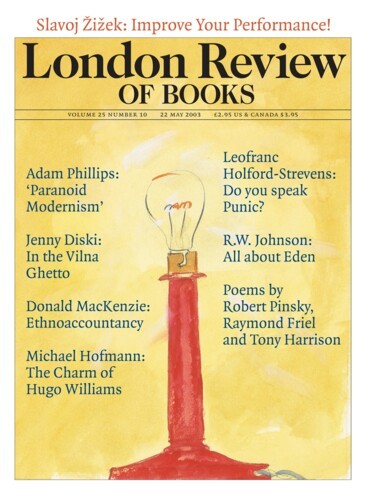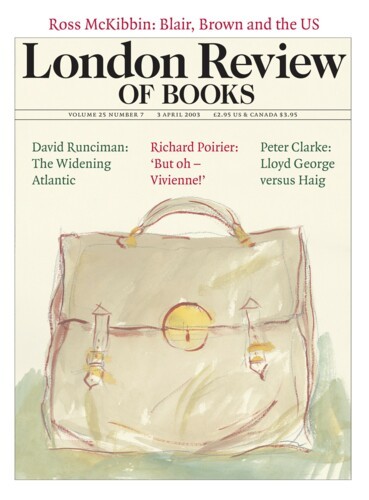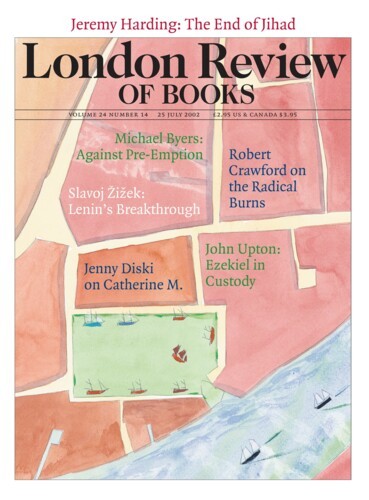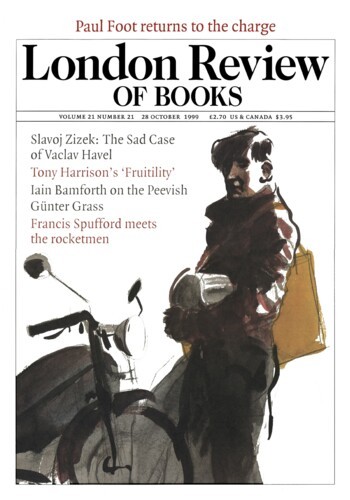Bring me my Philips Mental Jacket: Improve Your Performance!
Slavoj Žižek, 22 May 2003
“The philosophical question here is whether the unfortunate rat was aware that something was wrong, that its movements were being decided by another power. And when the same experiment is performed on a human being . . . will the steered person be aware that an external power is deciding his movements? And if so, will this power be experienced as an irresistible inner drive, or as coercion?”





